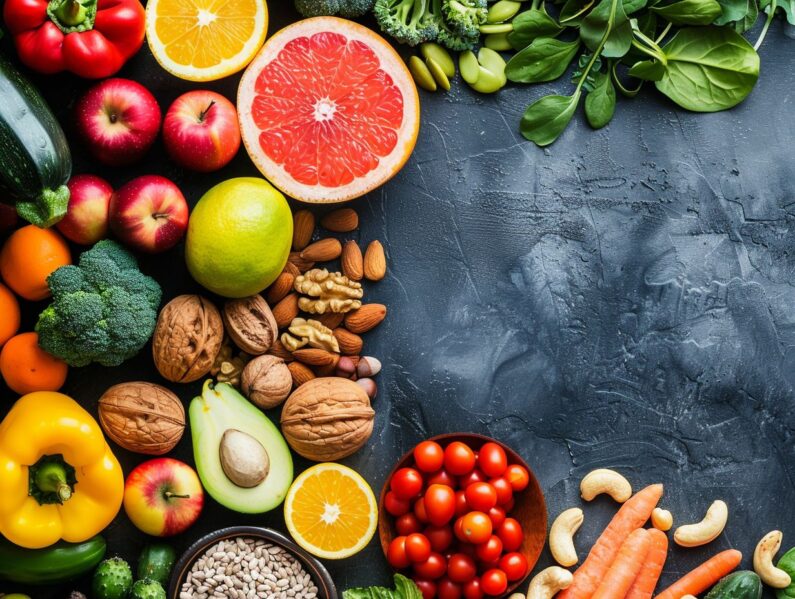You need to know that prolactin is a hormone that’s pretty important in your body, especially when it comes to making breast milk. Having high levels of prolactin can cause some health issues.
Let’s get into what causes high prolactin levels, what symptoms to look out for, and how you can treat it. We’ll chat about how your diet, lifestyle habits, natural supplements, and knowing when to reach out to a healthcare pro can help manage those high prolactin levels.
Join us on this journey as we uncover the world of prolactin and figure out the best ways to keep those levels in check.
What Is Prolactin?
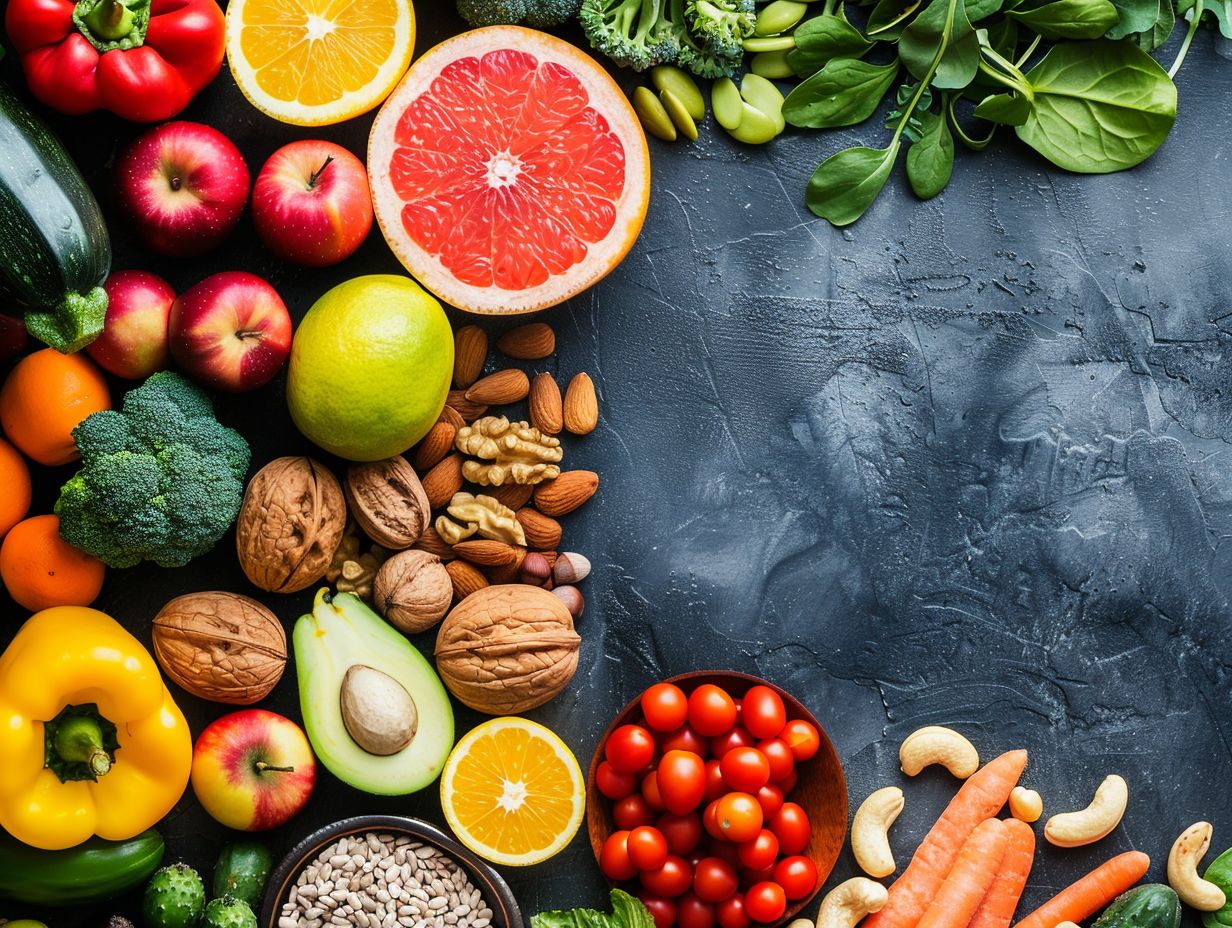
You’re probably familiar with prolactin – it’s a hormone your pituitary gland pumps out, pulling some serious weight in your body’s operations. Especially for women, prolactin is key during pregnancy and breastfeeding, working hard to regulate milk production and keep the reproductive system in check.
What Is the Role of Prolactin in the Body?
Your body relies on prolactin to do a lot of heavy lifting – from ramping up milk production for nursing moms to influencing estrogen and dopamine levels, this hormone is like the backstage manager for your hormonal health. Prolactin is crucial for keeping things in balance, especially when it comes to lactation.
In the grand scheme of things, prolactin is like the team player in your body’s hormone squad, working hand in hand with other hormones to keep the show running smoothly. Think of it as a dance – prolactin and dopamine busting moves together to make sure everything flows as it should. And don’t forget about estrogen – it can throw a curveball into prolactin’s game, showing just how interconnected our hormonal pathways really are.
Regarding milk production, prolactin takes the spotlight, shining a light on how important nutrition is for hormonal harmony. Fueling up with plant-based foods full of essential nutrients can be a game-changer for supporting lactation and keeping your overall well-being in check.
What Causes High Prolactin Levels?
When you have high prolactin levels, it could be because of different things like hormonal imbalances, issues with the endocrine system, or underlying hormonal disorders. It’s important for you to know what’s causing your elevated prolactin levels so you can take care of your hormonal health and work towards feeling your best.
What Are the Symptoms of High Prolactin Levels?
If you start noticing symptoms of high prolactin levels, you might see hormonal changes, irregular menstrual cycles, or even breast milk production when you’re not pregnant. These signs are key in catching things early and keeping your hormones in check.
High prolactin levels can also mess with your mojo, causing a drop in libido or erectile dysfunction for men, and messing with ovulation for women. You might even find yourself dealing with galactorrhea, where milk starts leaking out of your breasts on its own. These hormonal imbalances can mess with your metabolism, leading to weight gain and exhaustion. Watch these symptoms to make sure your hormones stay balanced and avoid any potential complications.
Managing high prolactin levels involves taking medication and making lifestyle changes to get things back on track. It’s all about stabilizing those prolactin levels and restoring normal hormonal balance for a smoother ride.
How Can High Prolactin Levels Be Treated?
When dealing with high prolactin levels, you need to take a multi-faceted approach. This means using medication to regulate hormones, trying out natural remedies, and making some changes to your lifestyle. Taking a holistic, plant-based approach can really help you manage your prolactin levels effectively.
What Are the Medications Used to Lower Prolactin Levels?
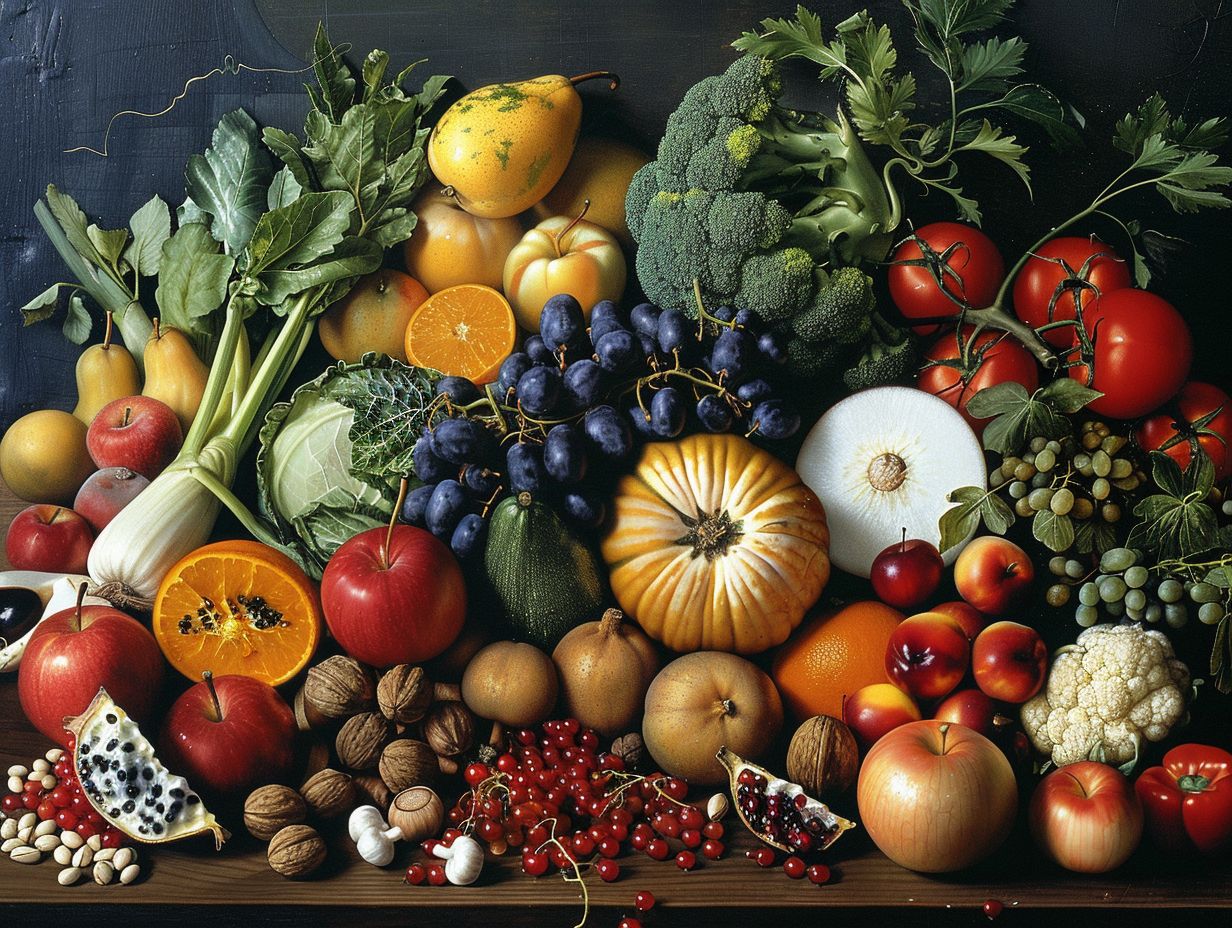
When you’re dealing with high prolactin levels, medications come to the rescue by targeting hormone secretion, metabolism, and synthesis processes in your body. These meds step in to help regulate the production of prolactin and restore your body’s hormonal balance.
By messing with hormone secretion, these medications get to work on putting the brakes on the release of prolactin from your pituitary gland. They amp up the metabolism of prolactin, making sure it gets broken down and eliminated from your system. These meds are like the superheroes of reducing the synthesis of prolactin, throwing a wrench in the production processes. With these moves, these medications are the secret weapon in controlling prolactin levels, tackling hyperprolactinemia and its pesky symptoms head-on.
Can Diet Help Lower Prolactin Levels?
Your diet is key in keeping your hormone levels, like prolactin, in check. By making smart food choices, you can lower your prolactin levels and help your hormones stay balanced for improved health.
What Foods Can Help Lower Prolactin Levels?
If you’re looking to naturally lower your prolactin levels, consider incorporating certain foods into your diet. Foods like seeds, nuts, vegetables, fruits, and herbs can be your best friends in this journey. These goodies are packed with essential nutrients that your hormones crave and help keep those hormone receptors in check.
Think about adding seeds like flaxseeds and sunflower seeds to your meals. They’re loaded with Omega-3 fatty acids and lignans that work wonders in regulating hormone levels. Nuts like almonds and walnuts are also great choices, giving you healthy fats and vitamin E to keep your hormonal balance in check.
Don’t forget about cruciferous veggies like broccoli and Brussels sprouts – they’ve got compounds that help break down excess hormones, including prolactin. And last but not least, indulge in some berries and citrus fruits for a dose of antioxidants that shield your hormone receptors from oxidative damage, ensuring they function at their best for that sweet hormonal balance.
What Foods Should Be Avoided to Lower Prolactin Levels?
If you want to lower your prolactin levels, you should avoid certain foods like dairy products that can mess with your hormones and throw off your body’s signaling system. Being mindful of what you eat plays a big role in keeping your hormones in check.
Apart from dairy, you should also stay away from foods that have hormone disruptors like processed meats and sugary snacks. These can mess with your body’s hormone regulation and mess up your prolactin levels.
Try to focus on a diet that includes lots of fruits, veggies, whole grains, and lean proteins to support your overall hormonal health. By paying attention to what you eat, you can help your body produce the right hormones and reduce the chances of any hormonal imbalances.
What Other Lifestyle Changes Can Help Lower Prolactin Levels?
Regarding lowering prolactin levels and getting those hormones in check, making lifestyle changes is just as important as watching your diet. Try adding some regular exercise into your routine, finding ways to manage stress effectively, and maybe even giving essential oils a shot to boost your overall wellbeing.
What Exercise Can Help Lower Prolactin Levels?
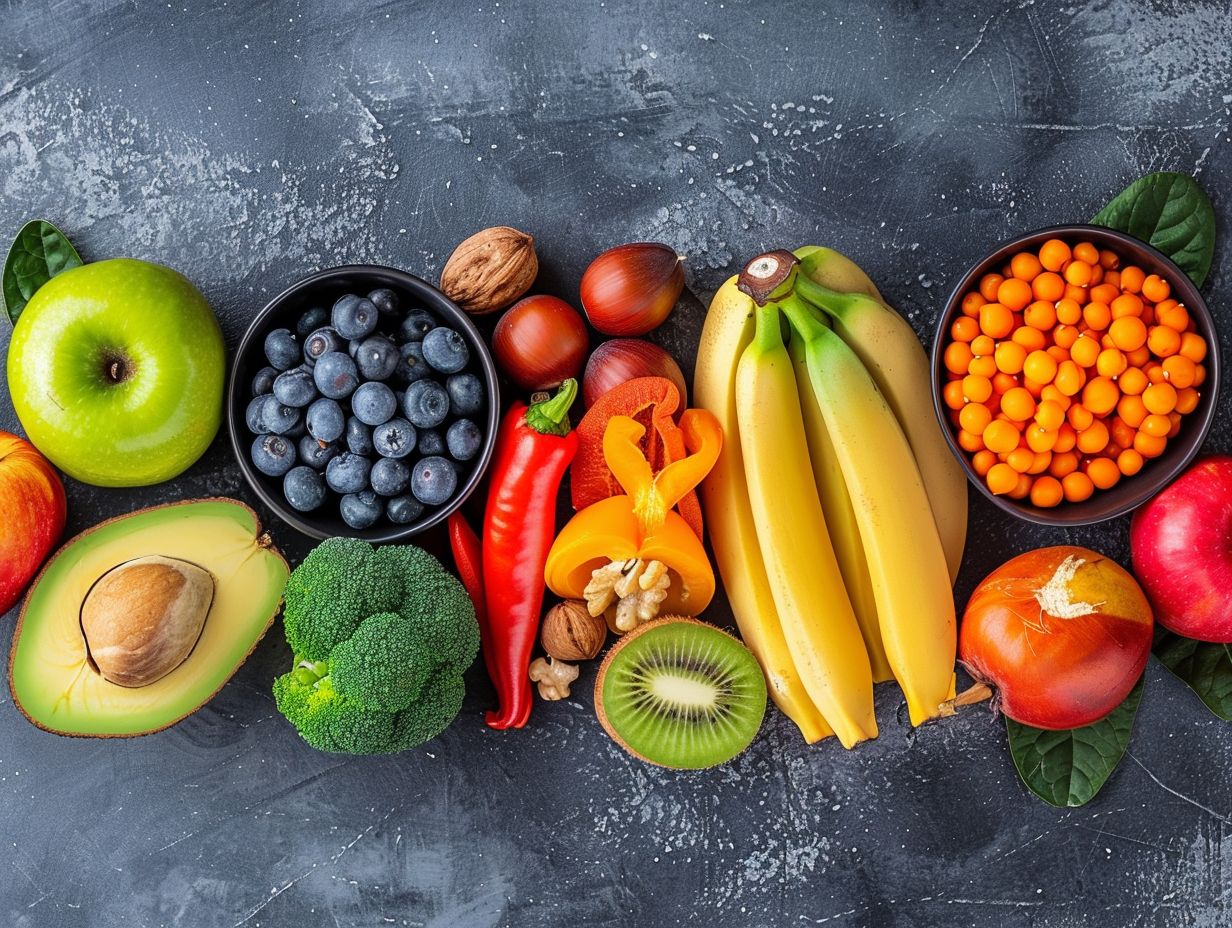
When you regularly exercise, like engaging in aerobic activities and strength training, you can give prolactin levels a nice little dip by positively influencing hormonal activity, control, and feedback processes in your body. It’s all about keeping that hormonal balance in check.
Aerobic exercises, such as running or cycling, are like little endorphin boosters that help keep your hormonal levels in line and lower your stress levels. But, if you prefer pumping iron or resistance training, like weightlifting, you’re in for a treat – these activities can rev up your metabolism, improve insulin sensitivity, and give your overall hormonal health a boost.
Throw some yoga or Pilates into the mix, and you’ve got the perfect recipe for relaxation and a drop in those pesky cortisol levels. It’s all about balancing those hormones. By trying out different types of exercises, you can effectively manage your prolactin levels and keep your endocrine system healthy and happy.
What Stress Management Techniques Can Help Lower Prolactin Levels?
To keep those prolactin levels in check, you gotta get on board with some effective stress management techniques like meditation, yoga, and deep breathing exercises. These tricks influence hormonal signaling, hormone pathways, and metabolism, all playing a key role in maintaining that hormonal balance you need.
Regarding tackling stress, these techniques are the real deal. They work by knocking down cortisol levels, the stress hormone that’s directly tied to prolactin spikes. So, when you dial down the cortisol through activities like mindfulness meditation, it sets off a domino effect on other hormones, prolactin included. By weaving these practices into your daily routine, you’re not only giving your hormonal health a serious boost but also helping your body regulate all those physiological processes like a pro. Making stress reduction a top priority through these methods can really keep your hormones in check.
Can Natural Supplements Help Lower Prolactin Levels?
You can lower your prolactin levels effectively by using natural supplements. These supplements help support your hormonal function, optimize your body’s hormonal response mechanisms, and stabilize hormonal fluctuations. Just adding natural supplements to your daily routine can really help regulate your hormones.
What Are the Most Effective Natural Supplements for Lowering Prolactin Levels?
If you’re looking to lower your prolactin levels naturally, consider incorporating supplements like Vitex Agnus-Castus, Vitamin B6, and L-tyrosine into your routine. These supplements are known for their ability to influence hormonal mechanisms and disrupt imbalances, offering a natural way to regulate your hormones.
Vitex Agnus-Castus, also known as Chaste Berry, targets the pituitary gland to decrease prolactin production. Vitamin B6 plays a key role in balancing various hormones, including prolactin, by aiding in neurotransmitter synthesis. L-tyrosine, an amino acid, supports dopamine production, a neurotransmitter that helps control prolactin levels.
By helping maintain hormonal balance, these supplements can support your overall hormonal health and potentially benefit conditions associated with high prolactin levels.
When Should You See a Doctor for High Prolactin Levels?
If you’re going through persistent hormonal changes, unexplained symptoms, or suspect hormonal disorders linked to high prolactin levels, it’s a good idea to reach out to a doctor for a thorough evaluation and treatment. Getting medical advice can pinpoint any underlying health problems and boost your overall well-being.
Frequently Asked Questions
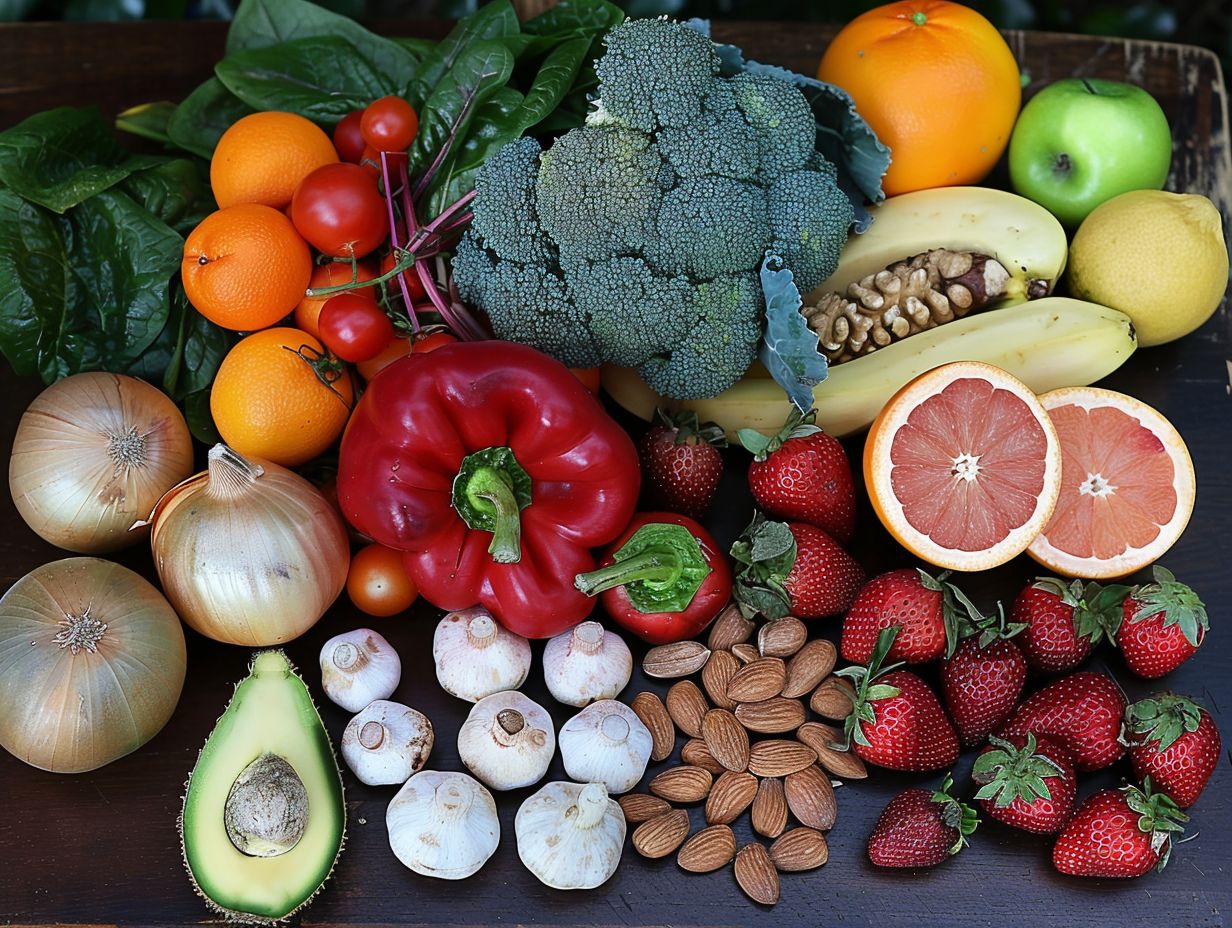
What are some foods that lower prolactin levels?
Some foods that have been shown to lower prolactin levels include broccoli, kale, Brussels sprouts, cabbage, and cauliflower. These are all cruciferous vegetables that contain compounds that can help regulate hormone levels in the body.
Is there a specific diet for lowering prolactin?
There is no specific diet for lowering prolactin, but incorporating more whole foods and reducing processed foods may help regulate hormone levels. Eating a balanced diet with plenty of vegetables, fruits, lean protein, and healthy fats is generally recommended for overall health and well-being.
Do certain herbs and spices lower prolactin?
Yes, there are some herbs and spices that have been shown to have a positive effect on prolactin levels. These include turmeric, ginger, holy basil, and chasteberry. However, it is important to consult with a healthcare professional before incorporating any new herbs or supplements into your diet.
Are there any foods to avoid for high prolactin levels?
Foods high in sugar and processed carbohydrates may contribute to high prolactin levels. It is also recommended to limit or avoid dairy and soy products, as they contain compounds that can mimic the effects of estrogen in the body and potentially increase prolactin levels.
Can foods alone lower high prolactin levels?
In some cases, dietary changes may be enough to lower high prolactin levels. However, it is important to work with a healthcare professional to determine the underlying cause of elevated prolactin and develop a comprehensive treatment plan. In some cases, medication or other interventions may be necessary in addition to dietary changes.
Are there any side effects of eating foods that lower prolactin?
No, there are no known side effects of incorporating foods that lower prolactin into your diet. However, it is important to listen to your body and make sure these foods agree with you. If you experience any discomfort or adverse reactions, it is best to stop consuming these foods and consult with a healthcare professional.

As a dedicated writer and martial art enthusiast, I have carved a unique niche where the pen and the sword truly coexist. With over a decade of experience, my journey has been one of constant evolution, blending the discipline and focus of martial arts with the creativity and depth of writing. My work spans various genres, including fiction, self-help, and martial arts instruction, offering readers insights not just into the arts themselves, but into the life lessons they embody.

